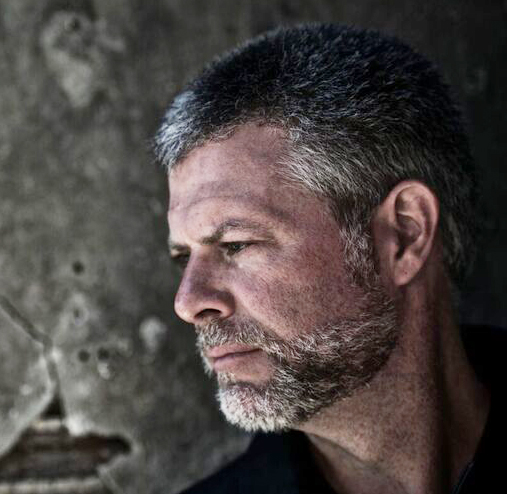BA in Liberal Studies, Global and Social Justice Studies
Strengthen your capacity to effect social change.
If you're passionate about addressing urgent social problems, our Global and Social Justice Studies concentration can help you achieve the necessary competencies. This concentration highlights the important role social movements have played throughout history in creating a more peaceful global society. Movements that have empowered youth, workers, indigenous communities, religious leaders, women, artists, cultural workers, and committed individuals of every color have effectively shaped the world that we live in. But these progressive movements were only started because of courageous leaders who were committed to a cause and showed immense bravery by challenging the status quo. Will you be next?
This degree is offered by Antioch University's Seattle Campus.
Program Overview
The goal of the Global and Social Justice Studies concentration is to prepare students to work within global and social justice organizations (e.g. nonprofit, governmental, educational, political, labor, philanthropic, humanitarian, and/or community-based organizations). Students interested in addressing urgent social problems, strengthening their own civic engagement, and/or pursuing graduate studies are encouraged to participate in this concentration. Global and Social Justice Studies foreground the important role social movements - consisting of diverse youth, workers, indigenous communities, religious leaders, women, artists, cultural workers, and committed individuals of every color - have played throughout history in creating a more peaceful global society. Through coursework and community-based learning opportunities, students will gain various political, theoretical, and organizational skills necessary to foster the conditions for empowerment and transformation within themselves as well as with their respective communities.
Customization is Key
In the BA in Liberal Studies program, each study plan is based on the student’s past experience, current needs and interests, and future goals. Students work in close collaboration with faculty advisors, instructors, and other students to shape their studies. Students build on earlier college work and on competencies learned at home and at work, through independent reading and volunteer activities.
Additional Information
The Liberal Studies Bachelor's degree requires 180 quarter credits, including a minimum of 60 upper-division credits, and a maximum of 120 lower-division credits. A minimum of 30 semester or 45 quarter credits must be completed with Antioch University. Graduation requirements include:
- a senior capstone project
- 7 liberal studies courses
- an internship, or other in-the-world learning experience of the student’s choosing
- at least 40 credits in the Global and Social Justice concentration
- Confronting Inequality
- Freedoms & Unfreedoms in US History
- Movements of the Marginalized
- Civil Rights Tour
- Narrating Change: Stories for Collective Action
- Beyond Homelessness
- Intersectional Coaching
- Sexualities, Genders & Identities
- Mapping Worlds: Wayfaring at the Margins
- LGBTQIA Voices
- Displaced Persons: Immigrants & Refugees
- Youth at Risk
- Women’s Education Project
- Washington Fair Trade Coalition
- Social Justice Fund
- King County juvenile justice program
- Field-based learning to organize/support an international human rights day event
- Design and facilitate an educational curriculum related to social/global justice issues
- Design a community-based research project with a local organization
- Interview and document the “counter-narratives” of community activists
- Organize an International Human Rights Day event/symposium
The goal of the Global and Social Justice Studies concentration is to prepare students to work within global and social justice organizations, including:
- Nonprofit
- Governmental
- Educational
- Political
- Labor
- Philanthropic
- Humanitarian
- Community-based organizations
Faculty Spotlights

Sara Beth Lohre
Affiliate Faculty

Barrett Martin
Adjunct Faculty

Colleen Hilton
Adjunct Faculty

Elizabeth Burke
Senior Lecturer & Adjunct Faculty
Admissions
How to Apply:
Antioch University Seattle offers a Bachelor of Arts degree in Liberal Studies through a degree completion program. All applicants to the BA program must have completed at least 36 quarter or 24 semester credits to be eligible for admission. A combined minimum of one full-time year of college credit is required; however, AUS will transfer up to the equivalent of three full-time years (80 semester credits/120 quarter credits, and up to 135 quarter credits if at least 15 credits are upper-division).
- Complete the online admissions application.
- Submit official transcripts from ALL colleges/universities you have attended to the Admissions Office. Transcript evaluations are required for all coursework completed outside of the U.S. or Canada (except Quebec). See Transcript Evaluation section on International Students webpage for details.
- Submit a short essay (two-three pages; approximately 500 words) that addresses why you would like to finish your bachelor’s degree at Antioch University Seattle.
- International Students have additional admission requirements. See International Students page for details.
Application Deadlines:
| Quarter | Application Deadline* | Start Dates |
|---|---|---|
| Spring | March 15 | March 31 |
| Summer | June 15 | July 1 |
| Fall | September 15 | September 30 |
| Winter | December 15 | January 2 |
| *Complete applications received after the Deadline date may be considered if space is still available in that quarter or will be reviewed for the next available term. | ||
Applicants coming to AUS fulfill the minimum transfer requirement with:
- College courses taken at a U.S. college or university (with a final grade of ‘C’ or better, or pass if taken as pass/no pass)
- College Board Advanced Placement exams (a score of 3 or higher)
- CLEP credit (a score of 50)
- International coursework (university, college, upper-secondary/gymnasium) that is assessed to be equivalent to college credit earned at a regionally accredited U.S. college/university (with a final grade of ‘C’ or better, or pass if taken as pass/no pass) by an external transcript evaluation agency.
Antioch University Seattle Admissions Office 2400 Third Avenue, Suite 200 Seattle, WA 98121 [email protected] LEARN MORE
Cost
| Per quarter credit | $535 |
| View the Cost of Attendance Components | |
Our students typically earn 10-25 credits for life experience/prior learning, up to a maximum of 45 and transfer in between 45-120 credits. It takes 180 credits total to graduate. Please note: Additional fees for all AUS programs may include (but are not necessarily limited to) charges for materials, late registration, enrollment maintenance, parking, graduation, transcripts, tuition payment plan, late payments, late registration, and returned checks.
Financial Aid
A majority of AUS students finance their education through some form of financial aid. You may not be sure which federal, state, public and private aid packages – such as loans, scholarships, and grants—are right for you. Our staff is here to help you, so you can focus on what’s most important: beginning your academic program at AUS.
Transfer Credits and Prior Learning
Transfer Credits
Prospective students with at least 36 quarter credits (equivalent to 24 semester credits) of college credits from an accredited institution can apply to complete their degree in one of Antioch’s Bachelor’s degrees. Our undergraduate programs accept a maximum of 120 quarter credits/80 semester credit lower-division credits that can be transferred toward your degree program. Antioch will accept 135 quarter credits (90 semester credits) of lower-division and upper-division learning that can be transferred toward your degree. The formal evaluation of previously earned transfer credits starts during the admission process. For more information regarding the specifics of transfer credits, please talk with your admissions counselor.
*Note: See specific articulation agreements for any exceptions to these parameters
Prior Learning Credits
Undergraduate students can earn up to 45 university quarter credits (30 semester credits) for demonstrating college-level learning gained outside of school, such as through work experience, professional training, military training, or personal experience. Demonstration of prior learning involves showing evidence of the student’s knowledge of the topic and situating that knowledge within an academic context. Earning academic credit for prior learning activities may accelerate a student’s time to degree completion and significantly reduce tuition costs. Antioch offers a workshop and course to support students interested in earning credit through prior learning.
Free Unofficial Transcript Evaluation
Want to know how long it’ll take to finish your degree at Antioch? Upload your unofficial transcripts for a free evaluation, and our advisors will contact you. No strings attached.

Start your Antioch Journey
Take your next step - talk to our admissions team to find the right program for you.
